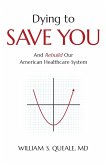Healthcare for all at affordable prices is still a major but universally elusive goal. Everyone spends money on healthcare, and it is the most impoverishing consumption item. Thus, most governments (and the United Nations) promote Universal Health Coverage - each country's unique blend of tools for healthcare financing, including taxes, subsidies and market controls. Most people in low- and middle-income countries (LMICs) have no health insurance of any kind. And most LMIC governments lack the political will, information, or resources to require their citizens to buy health insurance themselves or to subsidize insurance for all who cannot afford the price. This book deals with financing voluntary and contributory health insurance for resource-poor and rural groups in LMICs. This book addresses three issues. The first is how to catalyse demand for health insurance and develop insurance literacy among the largely illiterate and innumerate target population, using training programs to build an enabling consensus, allowing locals to create and administer such schemes. The second involves the process of developing simplified methods for risk assessment, which can help to underwrite risks, price the micro health insurance schemes, and ensure proper implementation. The third issue is formulating a compelling business case which would make this health insurance affordable, financially sustainable, and operationally scalable. This book develops insurance education and financial literacy for students of economics, business administration, insurance, development studies, and social work to prepare them for practical work as implementers, policymakers, or evaluators. A supplementary section for teachers and students includes comprehension questions.
Hinweis: Dieser Artikel kann nur an eine deutsche Lieferadresse ausgeliefert werden.
Hinweis: Dieser Artikel kann nur an eine deutsche Lieferadresse ausgeliefert werden.








